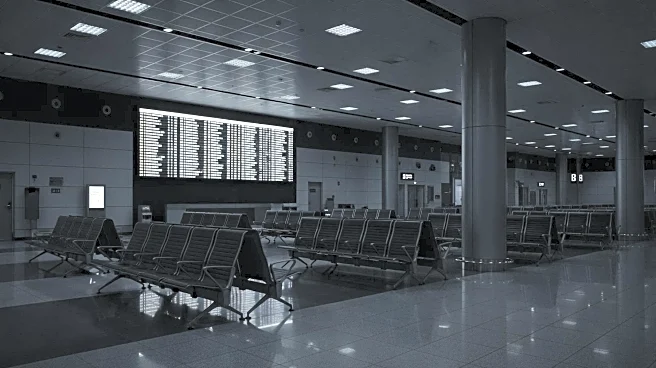What's Happening?
Belgium is experiencing a series of strikes culminating in a general strike on Wednesday, protesting against austerity measures. The strikes, organized by unions including FGTB, are set to affect public transport and public services, with significant
disruptions expected at Brussels and Charleroi airports. All departure flights are canceled, and incoming flights may also face cancellations. The strikes follow a national protest last month against government reforms and spending cuts, which saw tens of thousands of people taking to the streets. The unions are demanding fair pensions, a wealth tax, and transparency in subsidies to companies. The strikes are part of a broader movement that includes actions against violence against women.
Why It's Important?
The strikes highlight growing discontent with austerity measures and government reforms in Belgium. The disruption to air travel and public transport could have significant economic impacts, affecting businesses and travelers. The demands for fair pensions and wealth taxes reflect broader concerns about economic inequality and the distribution of resources. The strikes also underscore the challenges faced by the Belgian government in balancing fiscal responsibility with social welfare. The involvement of major unions indicates strong opposition to current policies, which could influence future political and economic decisions.
What's Next?
As the strikes continue, the Belgian government may face increased pressure to address the unions' demands. The disruption to transport and services could lead to negotiations between the government and unions to find a resolution. The strikes may also prompt discussions on broader economic reforms and social policies. The government's response to the strikes could impact its political standing and influence future elections. Stakeholders, including businesses and civil society groups, will likely monitor developments closely, assessing the potential impacts on the economy and social stability.
Beyond the Headlines
The strikes in Belgium reflect a wider European trend of public dissatisfaction with austerity measures and economic inequality. Similar protests have occurred in other countries, indicating a growing movement for social and economic justice. The focus on fair pensions and wealth taxes highlights ongoing debates about the role of government in ensuring equitable resource distribution. The strikes also raise questions about the effectiveness of traditional protest methods in achieving policy change, as well as the potential for new forms of activism and engagement.

















